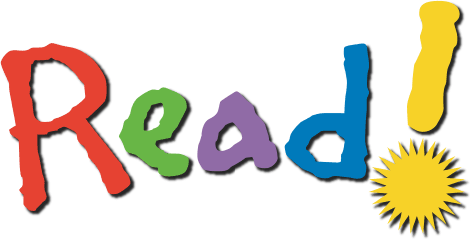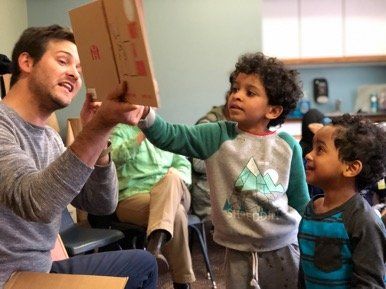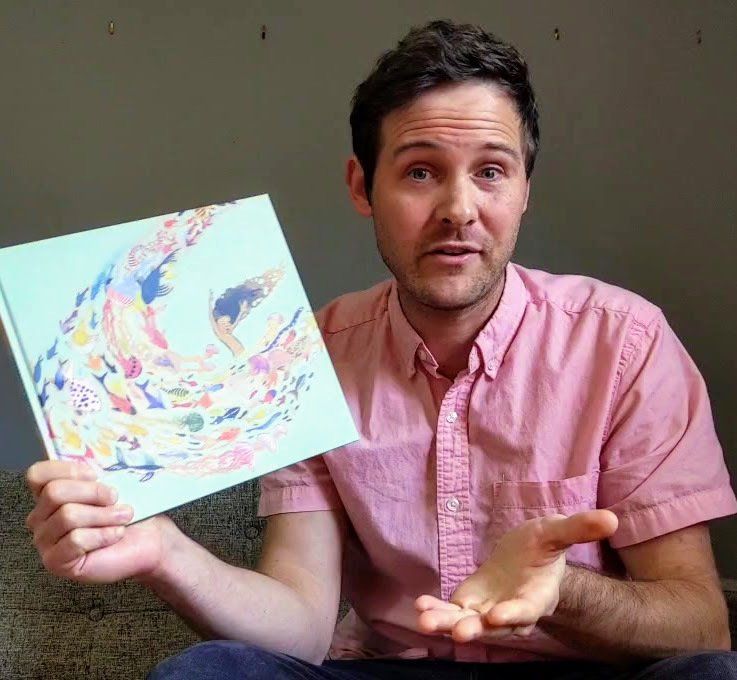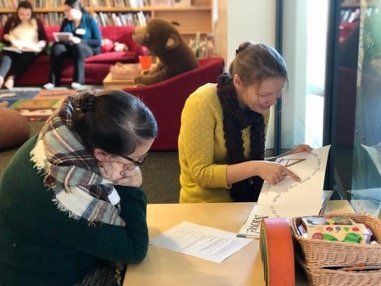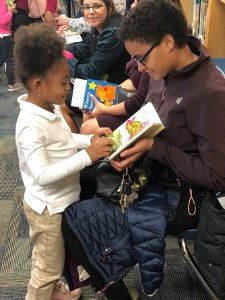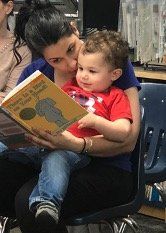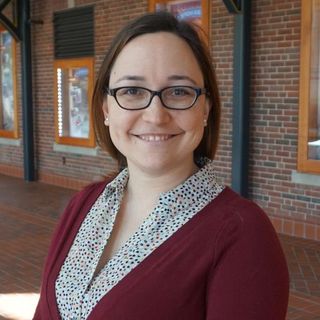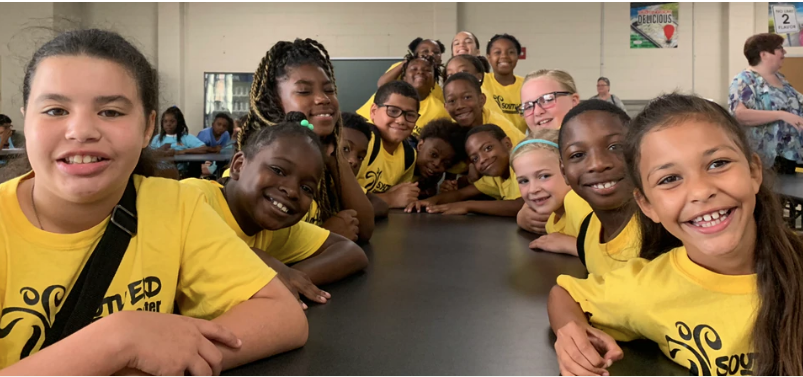Eric Carle Museum Takes the Lectio Approach Toward Literacy
January 8, 2021
The Carle's Bonding with Books program, supported by the Funder Collaborative for Reading Success, 2019.
The Lectio Institute guides stakeholders through an intensive process focused on improving the quality and results of their early learning and literacy programming services. Reading Success by 4th Grade (RS4G) brought the Lectio Approach to the Springfield literacy ecosystem. RS4G invited community partners and literacy leaders with a footprint in the city to learn more about early literacy, improvement science, and create and refine the literacy landscape.
The Lectio Institute upholds that “it is critical that we, as a field, take on a new approach to promoting children’s early reading skills—one that ensures our efforts and that helps our children reach their potential.”
David Feinstein, the program leader for the Eric Carle Museum’s involvement in the project, expressed excitement for the museum’s future after collaboration with the institute. Through their research-based evaluation tools, the program helps develop strategic goals, values, and outcomes.
“Our participation in the institute has pushed us to reconsider how the language of early literacy practices and research can inform how we communicate our approach,” Feinstein said. “The museum's education department is in the process of re-articulating its approach and practices.”
Feinstein also found that the museum’s programs have been designed to meet their goals for how children can improve literacy skills: “The majority of our programs are focused on changing behaviors...recent literacy research appears to reinforce the value of our focus on meaning-making skills.”
As the museum plans for the future, they are building a strategy based on the institute’s approach. Lectio prioritizes charting the landscape of the organization’s values and funding, applying strategies from literacy data, and developing an “evaluative and impact-driven mindset.”
Feinstein explains their intentions to share the program’s findings with the entire museum, receive widespread input, and overcome resource obstacles by “continuing to prioritize landscape-level analysis through commitment from institutional leadership.”
Just one of the many literacy-driven organizations within the community, Feinstein is also encouraged for the museum's collaborative impact. He emphasizes the local cross-group work through the Lectio Institute program: There are “several initiatives that have increased communication and coordination between Springfield literacy and Kindergarten Readiness organizations,” Feinstein said. “We can work together to reduce redundancies, share the best practices, and maximize impact.”
As the Eric Carle Museum works to strategize optimal early learning experiences for children, they also continue to stimulate individuality and creativity through the art and engagement they offer to the community—with help from other local organizations.
Eric Carle Museum of Picture Book Art is a nonprofit organization
in Amherst, Massachusetts whose mission is to inspire a love of art and reading through picture books. www.carlemuseum.org
Facebook, Twitter: @CarleMuseum
Reading Success by 4th Grade
is a community-wide initiative to get all of Springfield’s kids reading proficiently by the end of 3rd grade. Their projects bring people together to learn, share, and advocate for early literacy in Springfield, Massachusetts. www.readby4thgrade.com
Facebook, Twitter, Instagram, LinkedIn: @ReadBy4thGrade
The Lectio Approach: Our mission is to unlock the power of our collective commitment to America’s youngest readers. We work to ensure that all children's literacy efforts and those they serve reach their potential, and that all stakeholders see the results and impacts they intended. www.lectioapproach.com and Facebook
Share
Topics
Recent Posts
Join Our Email List
